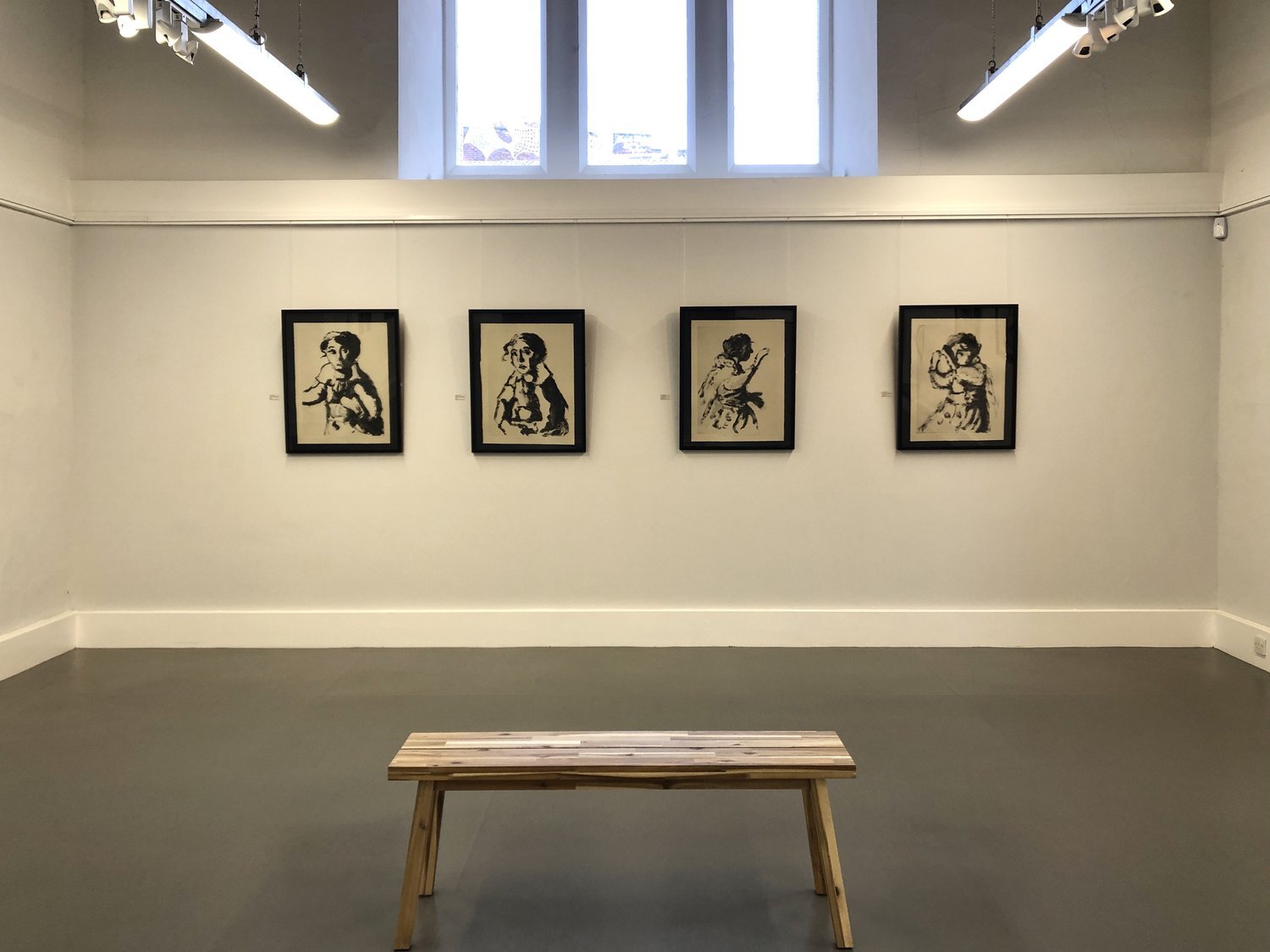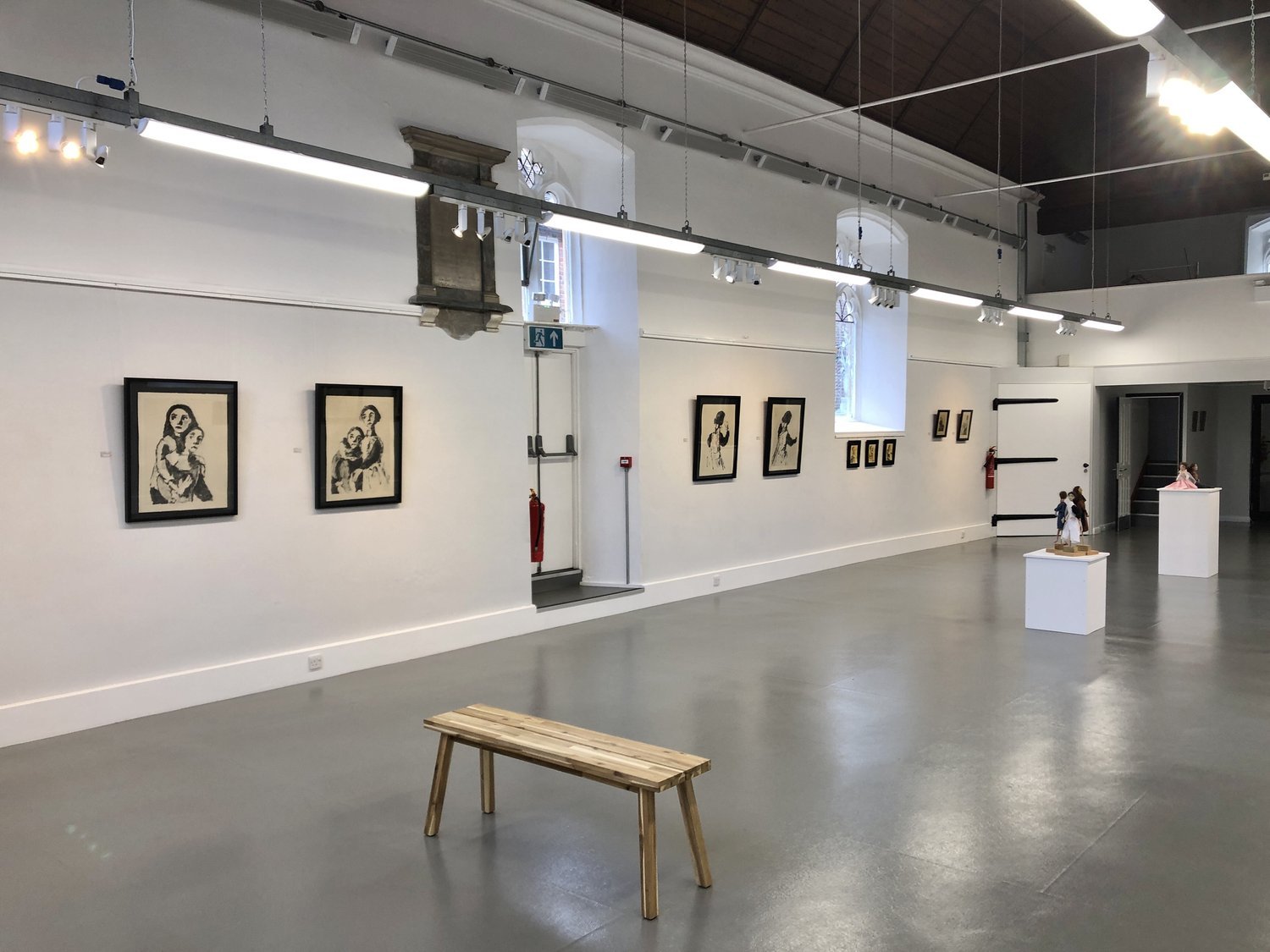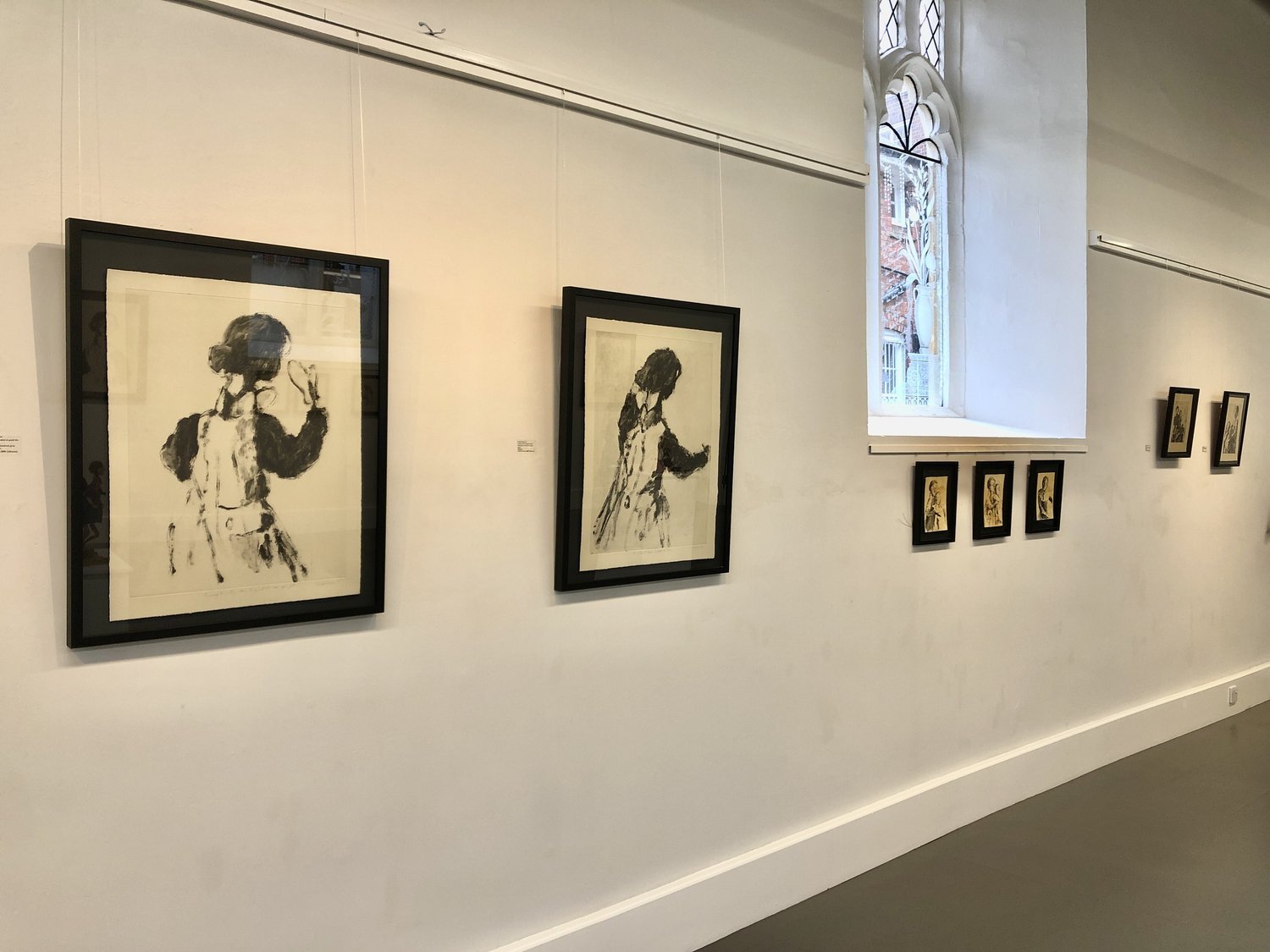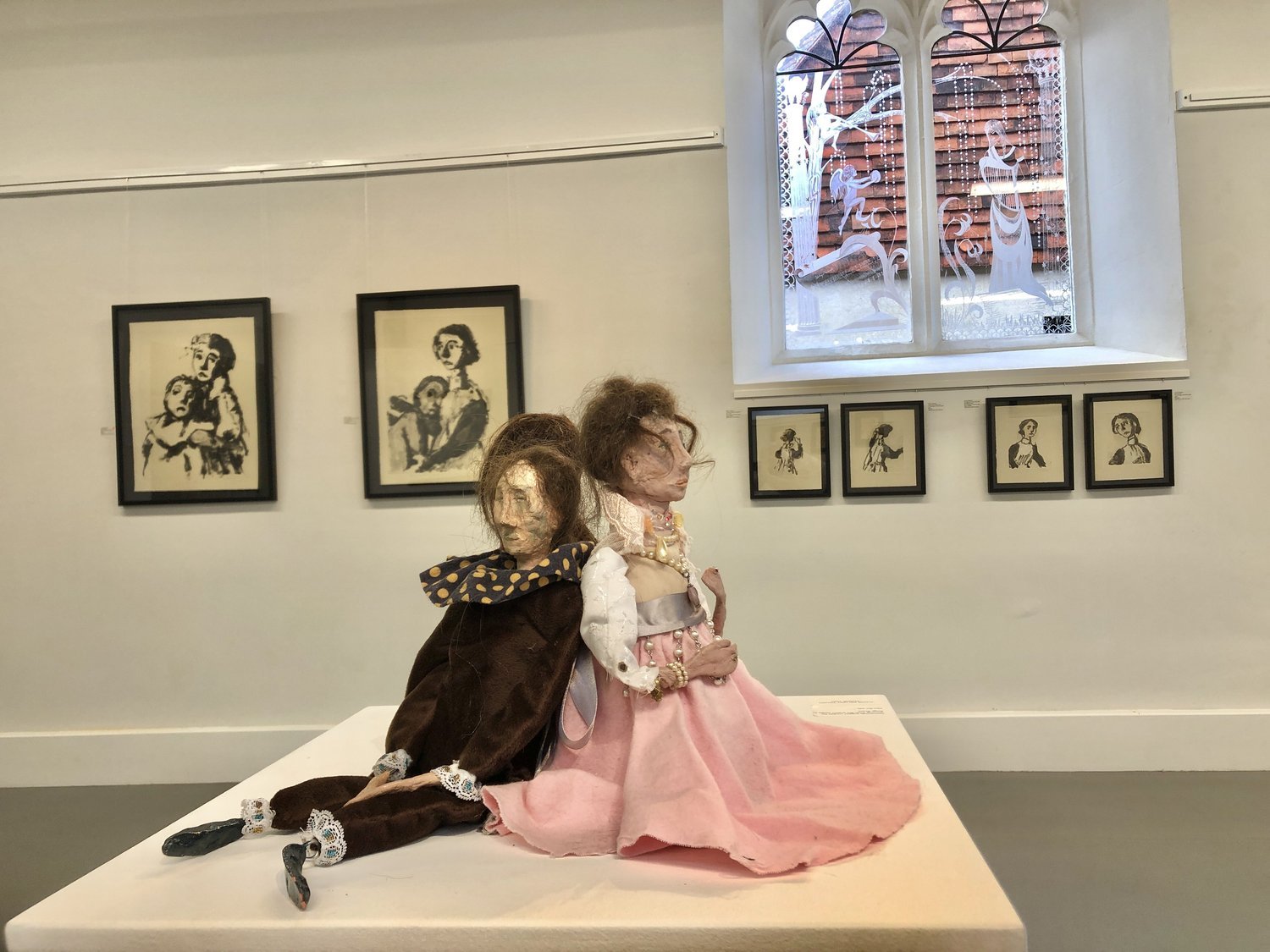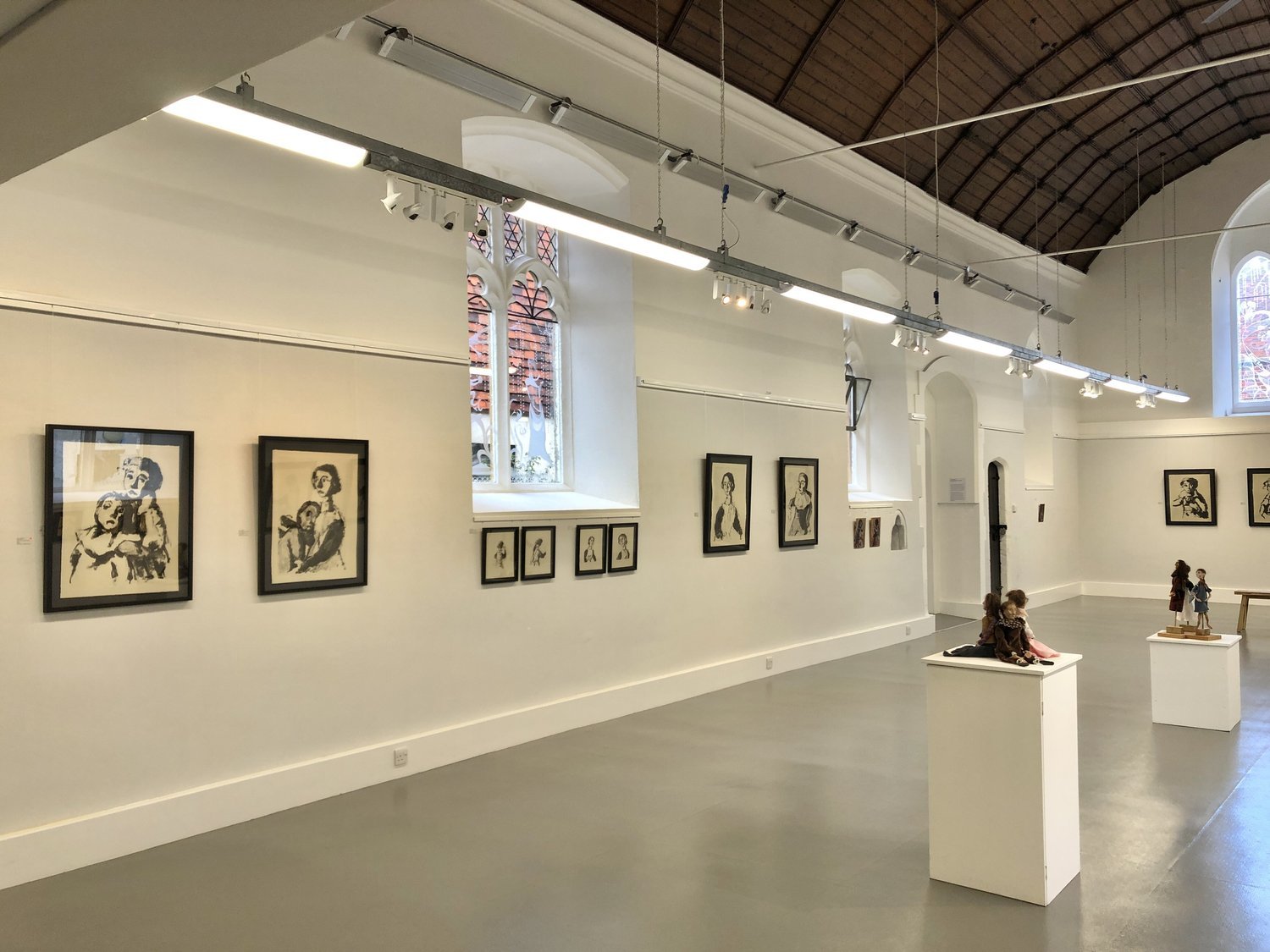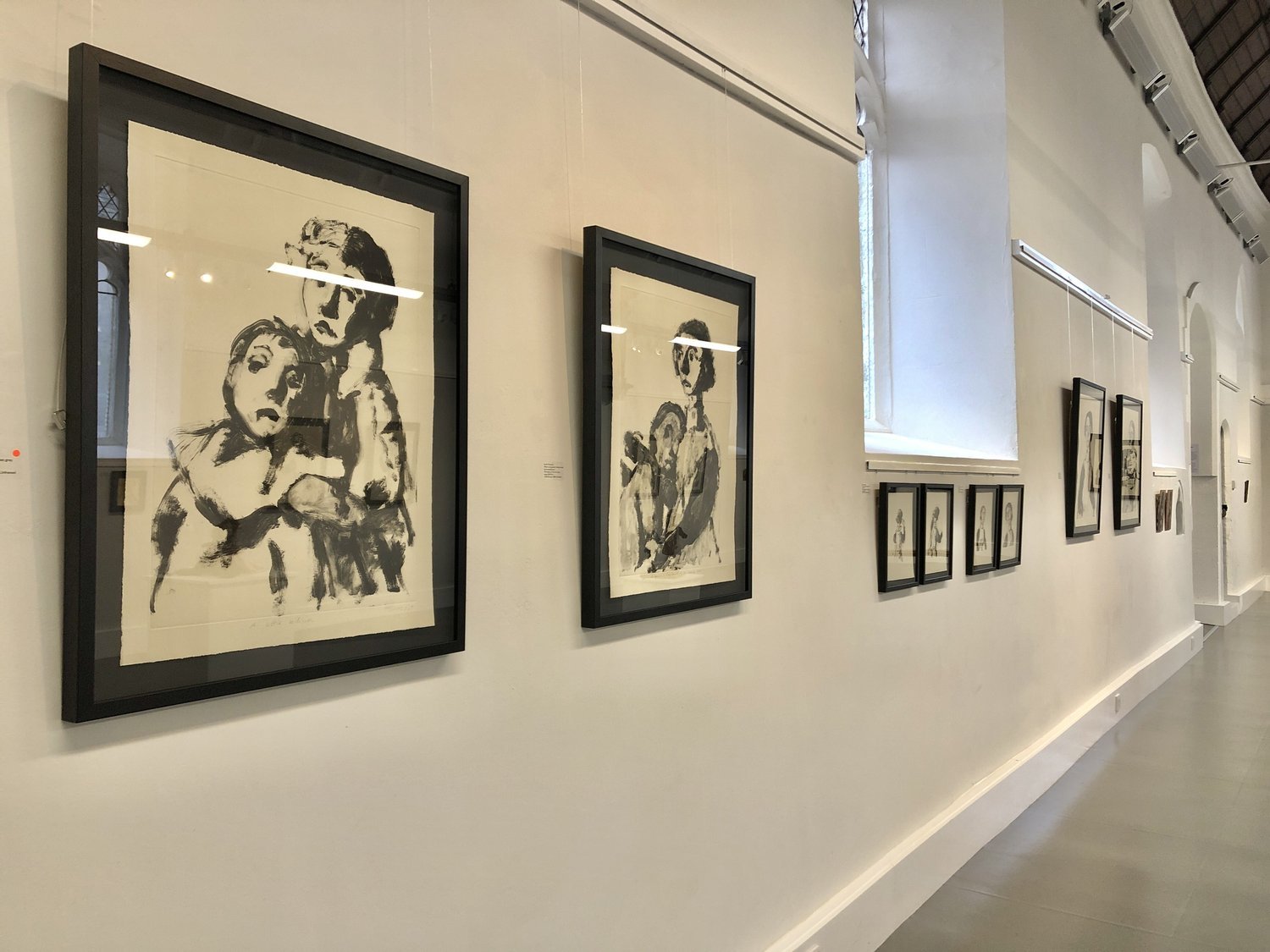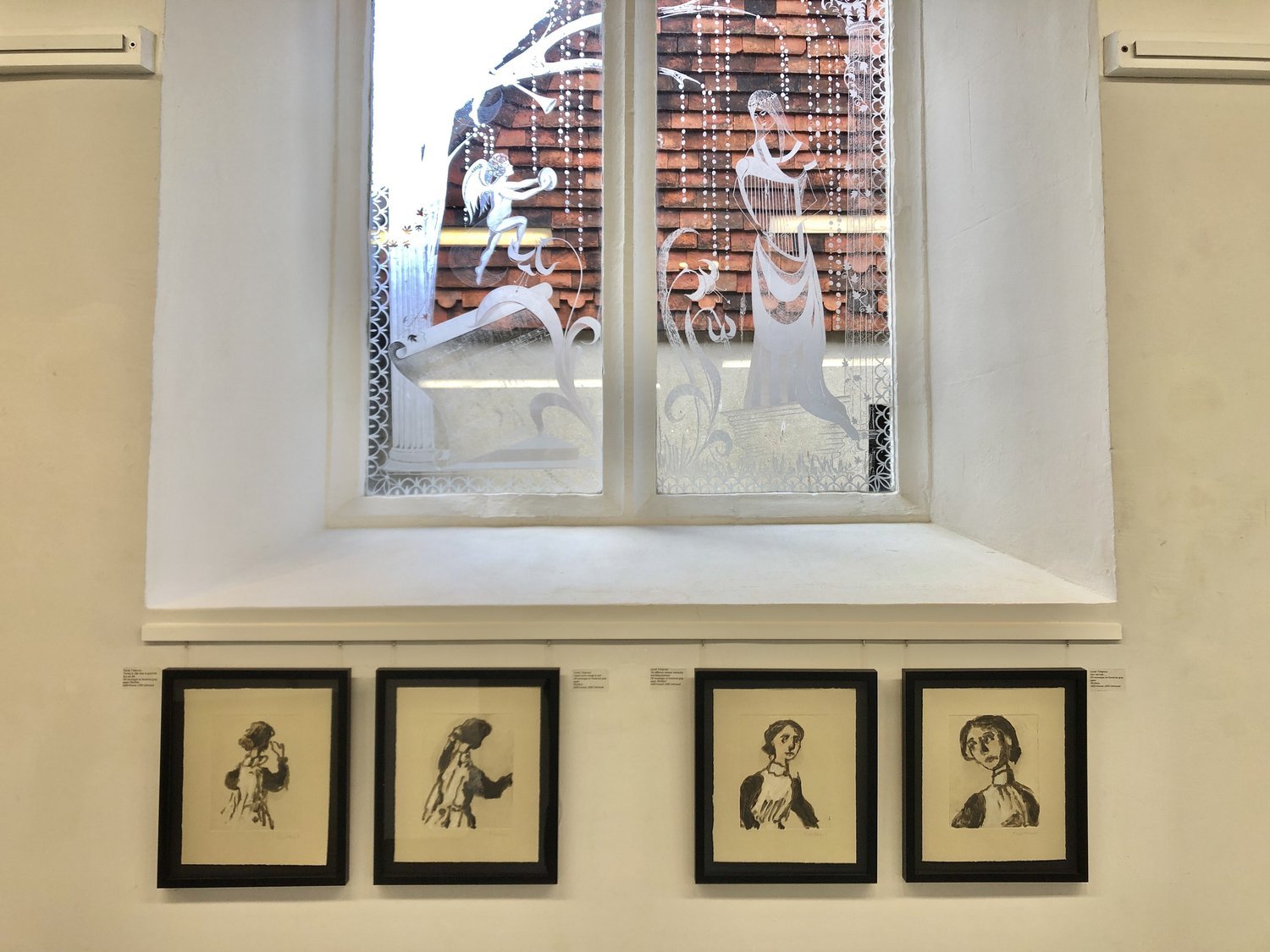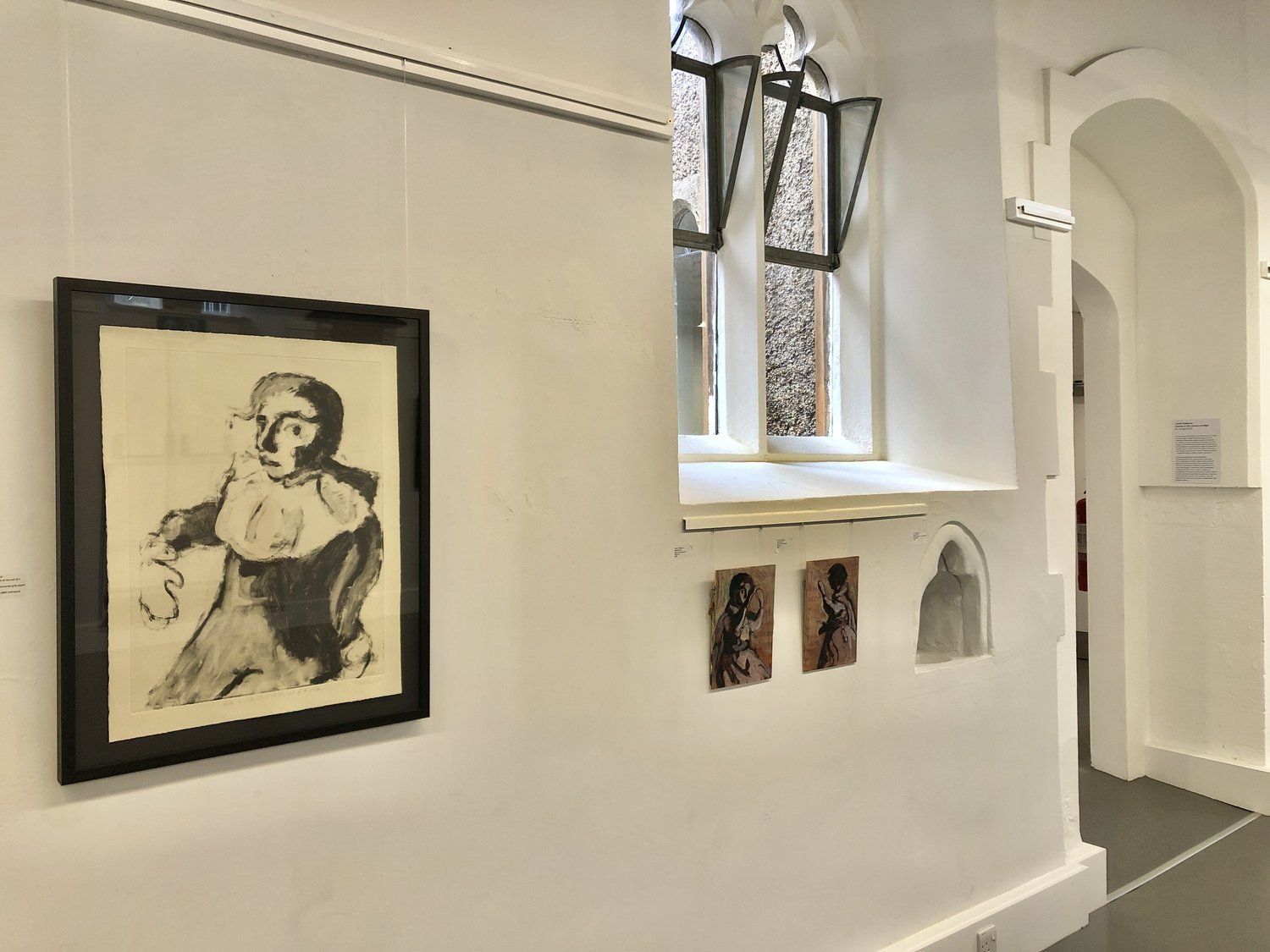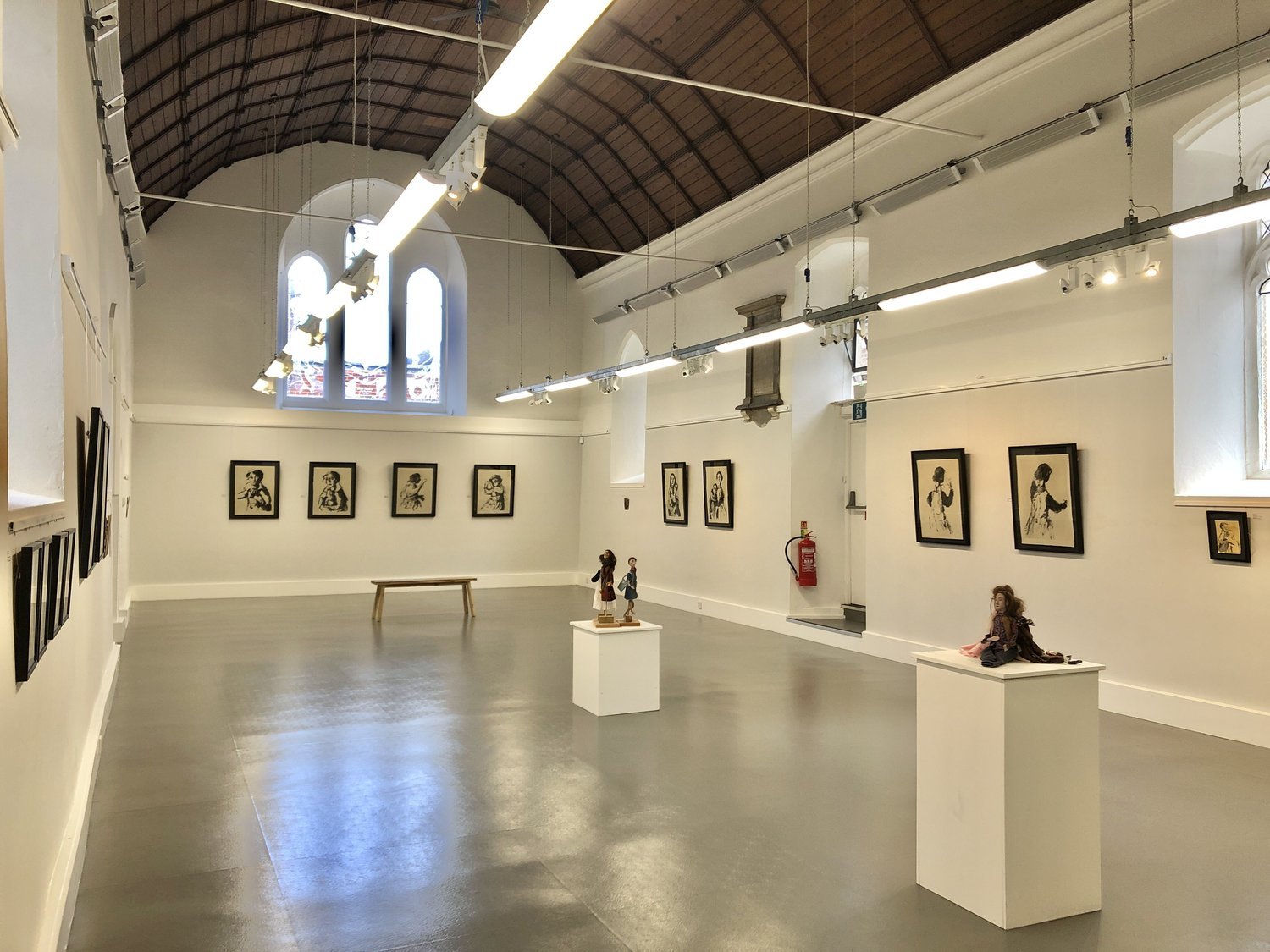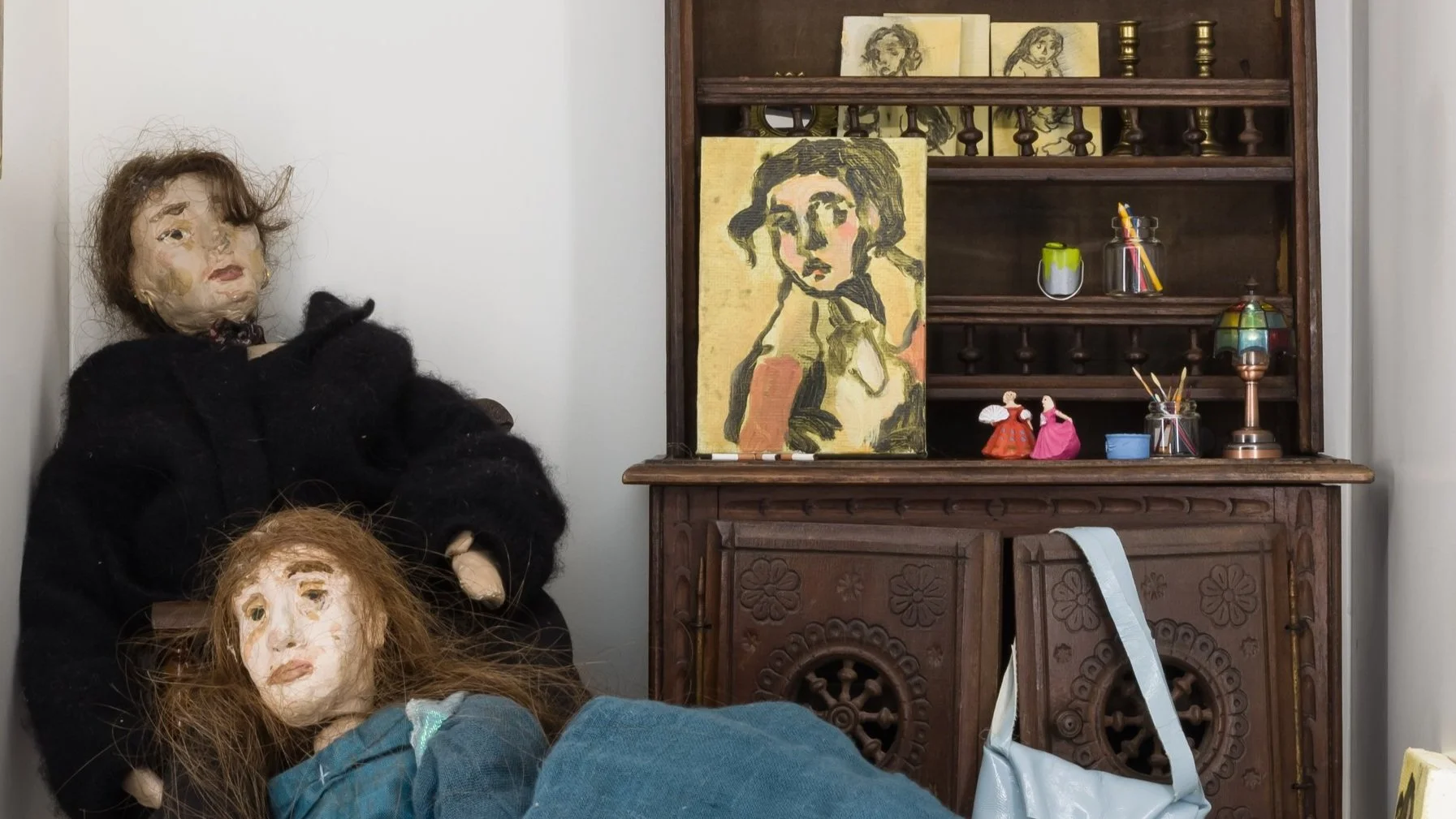Frontier at the Country of Night
Frontier at the Country of Night March 2022
A solo presentation at Oxmarket Contemporary in Chichester in March 2022
Liorah Tchiprout: Frontier At The Country of Night by John Phillips
Liorah Tchiprout’s recent body of work takes its title: Frontier at the Country of Night, from the poem Put the word to my lips by the Yiddish writer Rachel Korn.
Put the word to my lips
and lead me like a child by the hand
to the border outlined by tears
frontier at the country of night.1
Today, in 2022, there is temptation to read into these lines the plight of millions who flee to those same ‘borders outlined by tears’ that shaped much of Korn’s career and life. Afterall, in 1941, she too was rescued from the rubble of the first bomb dropped on Lviv by the Nazi advance into Poland and Ukraine, and she too became a refugee. Much of her poetry is infused with this experience. But poetry, whatever its catalyst, isn’t journalism. Equally, Tchiprout’s new works, many of which take their titles from Korn’s poems: To meet this sorrow, that’s still without a name; Or, could it have been a childish dream, are not illustrations of Korn’s ideas or words. They are images in the spirit of Norman O Brown’s proposal that ‘the proper response to poetry is not criticism but poetry2’.
So how might we understand Tchiprout’s engagement with Korn? Do they share a common frontier, and, if so, where might it lie?
Ask Liorah, and she will tell you that she has identified with women like Rachel Korn, or the dancer Els Keezer, since childhood, because they remind her of her own family. Only recently did she discover that her own mother’s family comes from a village only 10 miles from Pidlisky, in Eastern Galicia, where Korn grew up.
But she will also tell you that their boundaries extend beyond a common familial geography or culture. For Tchiprout, Korn’s poetry reaches out to an intangible realm of intuitions and feelings, which she grapples into words, in much the same way that Liorah, herself, moulds images from elusive feelings.
The combination of a strident directness and anxious vulnerability is common throughout both Korn and Tchiprout’s works. For Korn the very inkling of an emergent poem mingles terror and desire.
It’s a dread and endless fright,
A threshold of pain and grief,
A something standing at the door,
Wrapped in the gray, thick robe of twilight.
It’s unperceived, primeval,
A shore toward which my heart now swims alone,3
…The beginning of a poem
For Tchiprout, the act of making images requires ‘the will to take what you’re doing to the limits, to express those things for which I don’t quite have the words, but that can be captured in a glance, a turning of the neck, an attitude of standing.’
They share, via different means, a common interest in crystalising the amorphous by ‘giving to airy nothing a local habitation and a name’.4
But there is a danger in taking Tchiprout’s citations from Korn too literally. Titles are of course important. They are a guide to our interpretation of an image and key to embedding it in our memory. Ask anyone, for example, their opinion of the American, nineteenth century, masterpiece, Arrangement in Grey and Black No 1, and you’ll probably be met by a quizzical frown. Change the name to that work’s unofficial title Whistler’s Mother and you’re far more likely to be met with recognition. But titles can be MacGuffins5 that distract the viewer from the plot.
Observing Tchiprout’s work over the past five years that I have known her, has been an extraordinary privilege. When we first met, all of the elements present today: her pantheon of dolls, muted colour, restlessness and tireless need to draw, were there. The scale was intimate. The technique linear and tight. Today, many of these elements have grown in scale and stature, and they are complemented by an increasing technical fluidity and emotional precision.
Take away their titles and we are drawn once more, naked, into a world of half-shadows, intimacies and fear: A Frontier at the country of night.
John Phillips is the Director of London Print Studio
1 Rachel Korn, Trans Seymour Mayne with Rivka Augenfeld , Put the word to my lips, https://allpoetry.com/Put-Your-Word-To-My-Lips
2 Norman O Brown, Love’s Body, Random House, NY, 1966, p 205
3 Rachel Korn, Trans Edward Ginsburg, https://allpoetry.com/Poems-Beginning
4 The poet’s eye, in frenzy rolling,
Doth glance from heaven to earth, from earth to heaven
And as imagination bodies forth
The forms of things unknown, the poet’s pen
Turns them to shapes and gives to airy nothing
A local habitation and a name
William Shakespeare, A Midsummer Hight’s Dream, Act V, Scene 1
5 Cinematic device, popularised by Alfred Hitchcock.
Paintings, drawings and prints by Liorah Tchiprout





